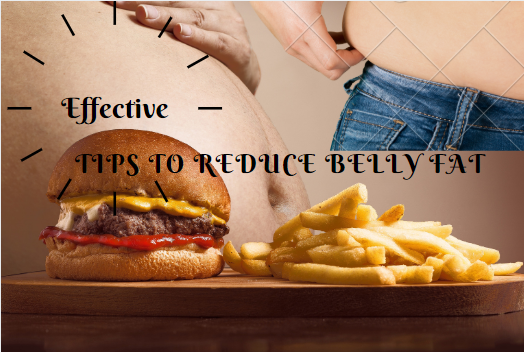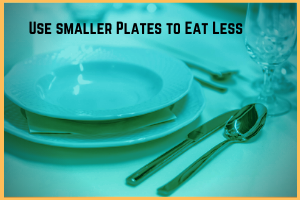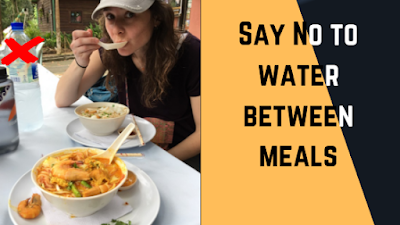Contents
5 Tips to Maintain Calorie Equation “Calories In = Calories Out”(Eat gently) Smart Idea No. 1:1. Easier Weight Loss: 2. Increased Satisfaction: 3. Digesting Enzymes Easily:(Use smaller plates) Smart Idea No.2:(Cardio Exercises on empty stomach)Smart Idea No.3 : (Say No to Water Between Meals) Smart Idea No.4:(Never Go Hungry)Smart Idea No. 5:
Tips To Reduce Belly Fat

Yes, belly fat is something that we all despise. Although not everyone can achieve six-pack abs, we all want a decent physique so that we can look beautiful in a variety of clothes. The main goals of our lives these days are to lose weight and be healthy.
Because of our lack of nutrition understanding, belly obesity has become a major issue. When we become bulky quickly, we begin seeking a way to lose weight, but only a few people look for the primary causes of bulkiness. It is complete folly to begin treating an illness without first determining the reason.
So, in this article, we’ll go over the most common causes of belly fat and give some simple Smart ideas or tips for reducing belly fat. You don’t have to do anything spectacular to follow their suggestions; all you have to do is change how you go about your daily tasks. We are not going to present a photo from 10 days ago with abdominal fat and a photo from today with six packs to demonstrate these techniques. We will only allow you to comprehend why these ideas are beneficial in a scientific manner; the rest will become clear after you have practiced them for a few days.
The primary equation for maintaining weight is “Calories In = Calories Out.” We obtain calories from food when we feed ourselves on a daily basis, and those calories are stored in our bodies. Every day we do so many works like walking, breathing, digestion, respiration, etc. by just burning those calories. Calories are required for me and my colleagues in the same way that petrol is required for a car.

If we consume more calories than we require, the excess calories are stored as fat in our bodies, and we gain weight day by day. Similarly, if we consume fewer calories than we require, we will lose weight gradually. Obesity, like being underweight, is bad for our health because it leads to a variety of ailments. So to maintain the right weight, we have to maintain the equation “Calories In = Calories Out”.
We commonly believe that completing some workouts and running in the morning will help us lose weight, but this is not the case. Our body weight is determined by 90% of the food we consume, with the remaining 10% going to our daily activities. You have two options: 1) you can eat a whole big chocolate bar and gain 1000 calories, then jog or exercise for one or one and a half hours to burn off the extra calories, or 2) you can avoid the chocolate or better yet, eat a small amount of it and gain only 100 calories, then jog or exercise for 10 minutes; the choice is yours.
5 Tips to Maintain Calorie Equation “Calories In = Calories Out”
(Eat gently) Smart Idea No. 1:
 |
Eating a lot is the primary cause of consuming a large number of calories, and eating rapidly is one of the primary causes of eating a lot. “Eat fast or you will miss the bus to go to work in the future,” our parents have told us many times since we were children. and as a result of being impacted by this debate, eating becomes a habit.
It takes nearly 20 minutes for the signal that our stomach is full to go from the abdomen to the brain after we begin eating. But what we did was finish our food in less than five or 10 minutes. As a result, we eat excessively. As a result, we consume more calories than we require.
Without this, there are several other advantages to eating slowly, such as:
1. Easier Weight Loss:
When the researchers ran a slow eating experiment with some women as volunteers, they discovered that the women consumed 646 calories when they finished their meal in just 9 minutes, and 579 calories when they finished the meal in 29 minutes. In the last scenario, they consumed 67 calories despite eating for a longer period of time. In the last scenario, they consumed 67 calories despite eating for a longer period of time. So, if you eat slowly three times a day, you will consume 67×3 = 201 calories fewer, which is equivalent to 20 minutes of jogging.
2. Increased Satisfaction:
2. Increased Satisfaction: When people ate quickly, they not only consumed more calories, but they also felt more hungry 1 hour after their last meal than when they ate slowly. As a result, eating slowly improves our meal satisfaction. Our stomachs get fuller when we eat slowly, even if we eat less food.
3. Digesting Enzymes Easily:
Many people believe that digestion begins in the stomach, however, this is incorrect; digestion begins in the mouth. When we smell food, our brain produces saliva, which begins the digesting process in our mouth. When we eat quickly and do not chew our food thoroughly, the digestion process in the mouth is incomplete. After that, the enzymes in our stomach are unable to effectively digest the partially chewed meal.
As a result, normal digestion is impossible to achieve while eating quickly, and numerous stomach illnesses result. Slow eating is an easy approach to create this habit; all you have to do is practice. If you are a quick eater, you must eat carefully for a few days, after which it will become second nature to you and you will be free of numerous stomach ailments.
(Use smaller plates) Smart Idea No.2:
 According to a study published in the Journal of the Association of Consumer Research, if the diameter of the plate on which food is given is reduced by 30%, food consumption will automatically decrease by 30%. However, there were two conditions. a) You must serve your food; b) You must not believe that no one else, including yourself, is watching the amount of food you consume. It is a simple method that allows us to consume 30% fewer calories.
According to a study published in the Journal of the Association of Consumer Research, if the diameter of the plate on which food is given is reduced by 30%, food consumption will automatically decrease by 30%. However, there were two conditions. a) You must serve your food; b) You must not believe that no one else, including yourself, is watching the amount of food you consume. It is a simple method that allows us to consume 30% fewer calories.(Cardio Exercises on empty stomach)Smart Idea No.3 :
Many of us look for the greatest exercises to lose fat while only relying on workouts for 10% of our body weight. Do some cardio activities first thing in the morning on an empty stomach if you want to reduce weight. Cardio Exercises are those exercises that raise our heart rate. Swimming, running, skipping, and other sports are examples.
The question now is why cardiac exercises are beneficial for weight loss. If you begin aerobic workouts on an empty stomach after sleeping for 6 to 7 hours, your body will require a lot of energy, and because your stomach is empty, fat will be targeted to provide that energy. At this point, the fat is broken down and the requirement for energy is met, resulting in direct fat loss. As you can see, this method is far more beneficial than doing weightlifting or Yoga on an empty stomach.
(Say No to Water Between Meals) Smart Idea No.4:
 One of our bad habits is to drink water between meals. Our liver excretes enzymes to help us digest the food we eat. When we drink water while eating, the water mixes with enzymes, causing the density of enzymes to decrease. As a result, food is stored in our bodies without being properly digested, which raises the level of insulin in our blood, and the amount of fat-storing increases as the level of insulin in the blood rises.
One of our bad habits is to drink water between meals. Our liver excretes enzymes to help us digest the food we eat. When we drink water while eating, the water mixes with enzymes, causing the density of enzymes to decrease. As a result, food is stored in our bodies without being properly digested, which raises the level of insulin in our blood, and the amount of fat-storing increases as the level of insulin in the blood rises. As a result, drinking water in between meals increases the rate of fat storage in our bodies and invites a variety of ailments. Water should be consumed 30 minutes before and one hour after a meal, according to research. To avoid the temptation to drink water, a small amount of salt and sugar should be added to meals when cooking. The two main sources of fat delivery in our bodies are sugar and salt. we have to drink water 3 liters daily to stay fit and healthy.
(Never Go Hungry)Smart Idea No. 5:
You were advised to eat less in prior suggestions, but now we are attempting to say eat less but never keep your stomach empty for lengthy periods of time. The major goal is to avoid overeating. When we are hungry, the likelihood of overeating increases.
When we are hungry, we eat more quickly and consume a large amount of food in a short period of time. Slow eating, eating on a smaller plate, all of these things fade from our minds, so we should attempt to avoid becoming hungry for long periods of time.
Doctors advise that we eat every three hours to avoid feeling hungry throughout the day. As a result, our breakfast should be healthy and filling, and we should eat less at lunch than at breakfast, and we should eat the least at supper while continuing to eat something every three hours. Protein-rich meals such as eggs, meat, and fish should be consumed in large quantities, whereas carbs and fatty foods such as grains and sweets should be consumed in moderation. Of course, we must shed fat in order to stay fit and healthy, but we must also improve the percentage of muscle in our bodies. Protein-rich foods will assist us in increasing our muscle mass.




